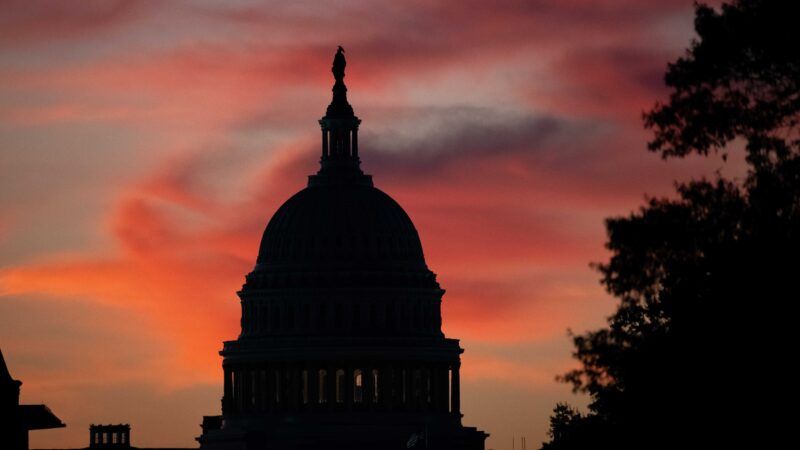How Democrats Could Hide $2 Trillion in New Spending With Budget Gimmicks
Legislating with budget gimmicks is shameful, timid, risky, and opportunistic. Mostly, though, it's really expensive.

It now seems fairly certain unlikely that President Joe Biden's $3.5 trillion "Build Back Better" will make it through the U.S. Senate as a $3.5 trillion spending plan.
Instead, the final version of the bill will probably have a topline spending figure of less than $2 trillion. Even Biden is now admitting as much. But it could have up to $2 trillion in additional, hidden costs, too—thanks to at least two potential changes that one budget watchdog group calls "blatant" gimmicks involving the expanded child tax credit and the Affordable Care Act.
Democrats are reportedly considering a one-year extension of the expanded child tax credit, which pays parents $3,000 annually for every child (and an extra $600 for kids under age 6) and is paid out as a refund even for families that owe no federal taxes. Previously, Biden's plan called for a five-year extension of the child tax credit. As I wrote in September, the five-year extension was a budget gimmick designed to make the tax credit appear to be roughly $700 billion less expensive than it otherwise would be within the standard 10-year budget window. In short, Democrats were signalling that the expanded child tax credit would be permanent, but they were only accounting for half of what it would actually cost to make it permanent.
A one-year extension would be mashing that same "gimmick" button even harder.
In a similar way, Democrats are also reportedly considering a shorter-than-planned extension of the expanded Obamacare subsidies made available during the pandemic. Instead of being extended permanently, those provisions would technically expire after three years—even though everyone knows they are likely to be extended past that sunset date.
"These proposals don't actually shrink the package; they just shorten it," says Maya MacGuineas, president of the Committee for a Responsible Federal Budget (CRFB), a nonprofit that advocates for balanced budgets. The CRFB estimates that the twin "blatant budget gimmicks" involving the child tax credit and Obamacare subsidies could hide between $1.5 trillion and $2.4 trillion in future spending, depending on other trade-offs in the final package. Even if the final bill is $1.9 trillion and requires no new borrowing on paper, the CRFB warns that the actual price tag could be as much as $4 trillion with much of the hidden cost financed by adding to the deficit.
As Reason's Peter Suderman explained earlier this week, this sort of legislative gimmickry is both shameless and timid, as it requires deception and an implicit acknowledgement of the deception. It's also not a novel or partisan maneuver. Both the Affordable Care Act and the 2017 Republican tax bill contained similar gimmicks that prevented a full accounting of their budgetary consequences through the normal 10-year window.
There is some political risk in temporary extensions of major programs, of course. Republicans in 2017 set their tax cuts to expire in 2025 because they assumed that even if Democrats had control of Congress then, the other party would not be willing to hike taxes and would eventually agree to an extension. Now, Democrats are prepared to bet that Republicans won't trash the child tax credit next year, or in five years. There's nothing as permanent as a temporary government program, after all.
Indeed, the short-term extensions also create political opportunity. Some Democrats have already realized that a short-term extension of the child tax credit means it could become a campaign issue in perpetuity. Democrats will be able to run every two years with the promise of extending it.
Shameful, timid, risky, and opportunistic. These budget shenanigans are all of those things.
Most importantly, though, they are really, really expensive.


Show Comments (62)